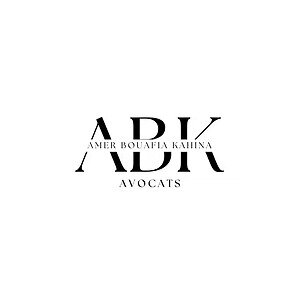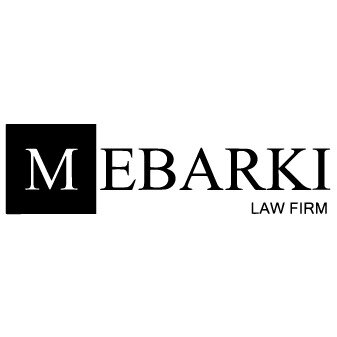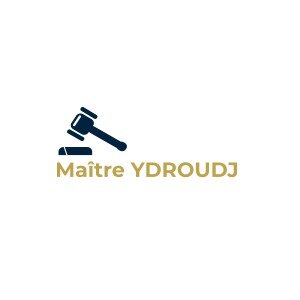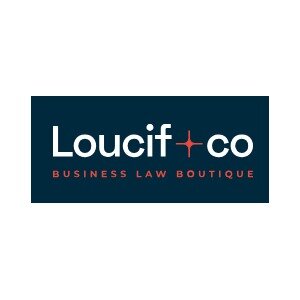Best Acquisition / Leveraged Finance Lawyers in Algeria
Share your needs with us, get contacted by law firms.
Free. Takes 2 min.
Or refine your search by selecting a city:
List of the best lawyers in Algeria
About Acquisition / Leveraged Finance Law in Algeria
Acquisition and leveraged finance refer to the legal and financial processes that support the purchase of companies, assets, or significant stakes in businesses by using debt and other forms of borrowed capital. In Algeria, this field is governed by a combination of civil law principles, financial regulations set by the Central Bank of Algeria, and various sector-specific rules. The landscape continues to evolve as foreign and local investors show increasing interest in Algerian assets, leading to greater activity in mergers and acquisitions (M&A) and related funding solutions.
Why You May Need a Lawyer
A lawyer is vital in acquisition or leveraged finance transactions for a variety of reasons. These transactions are usually complex and require navigating legal, financial, and regulatory considerations. Common scenarios where legal expertise becomes indispensable include:
- Structuring the financing of a company or asset purchase
- Drafting and negotiating loan agreements or security packages
- Conducting legal due diligence on targets for acquisition
- Complying with foreign investment and exchange control regulations
- Adhering to local financial laws and sector-specific restrictions
- Ensuring all conditions precedent and regulatory approvals are met
- Dealing with cross-border financing requirements
- Resolving disputes that may arise from acquisition or lending contracts
An experienced acquisition or leveraged finance lawyer will help you identify risks, design solutions, and ensure you achieve your business objectives while complying with Algerian law.
Local Laws Overview
Algeria operates under a civil law system, influenced by the French legal tradition. Key elements to consider in the context of acquisition and leveraged finance include:
- Foreign Investment Controls: Algeria has specific rules for foreign participation in Algerian companies, especially in strategic sectors. The 49/51 rule (which limited foreign ownership to 49 percent) has been relaxed in certain sectors, but restrictions may still apply.
- Exchange Control Regulations: Currency exchange and cross-border capital flows are regulated by the Bank of Algeria. Prior approvals and documentation are often required for inward or outward financial transactions.
- Security Interests: Algerian law permits the granting of security over assets such as mortgages, pledges, and other mechanisms but requires proper registration and sometimes governmental authorization, especially for real estate or public assets.
- M&A Regulations: Mergers and acquisitions are regulated by commercial law, competition law, and in some cases by sector-specific regulators (for example, in banking or hydrocarbons).
- Banking Law: Only licensed banks can conduct lending operations. Participation of foreign banks or lenders may face limitations or require local partnership.
- Anti-Money Laundering: There are robust anti-money laundering and anti-terrorism financing obligations that must be observed during any large financial transaction.
Non-compliance with these regulations may result in delays, penalties, or the invalidation of transactions, so it is crucial to engage competent legal counsel.
Frequently Asked Questions
What is leveraged finance and how is it used in Algeria?
Leveraged finance refers to the use of borrowed funds to finance the acquisition of companies or assets. In Algeria, it is used mainly for buying stakes in private companies or for large project finance, subject to local banking and foreign exchange regulations.
Are foreign investors allowed to finance acquisitions in Algeria?
Yes, but certain sectors still restrict foreign majority ownership. Foreign loans and equity investments are subject to approval by the Bank of Algeria and sometimes other regulators.
Do acquisition finance deals in Algeria require governmental approval?
It depends on the size, sector, and nature of the acquisition. Significant deals, especially involving state assets or certain regulated industries, often require prior governmental clearance.
What types of security can lenders take under Algerian law?
Lenders can take various types of security, including mortgages over real estate, pledges of shares, and assignments of receivables. Each type must follow specific formalities to be enforceable.
Can Algerian companies raise foreign-currency finance?
Raising foreign-currency finance is subject to strict exchange control regulations. Companies must comply with reporting, approval, and repatriation rules set by the Bank of Algeria.
Are there tax implications for acquisition finance transactions?
Yes, there can be various tax consequences including stamp duties, registration fees, and potential withholding taxes on cross-border interest payments. Professional tax advice is recommended.
What due diligence is required before an acquisition in Algeria?
Legal due diligence should cover ownership, regulatory compliance, labor matters, tax liabilities, contracts, and litigation history. Financial and technical due diligence may also be necessary.
How long do acquisition or leveraged finance transactions usually take in Algeria?
Timing varies greatly depending on the complexity, sector, and regulatory requirements. Transactions can take anywhere from a few months to over a year, particularly if multiple government approvals are needed.
What happens if a borrower defaults under an acquisition finance deal?
Upon default, lenders may enforce their security, initiate legal proceedings, or pursue negotiated settlements. The enforcement process can be slower than in some other jurisdictions and subject to court supervision.
Is Islamic finance available for acquisitions in Algeria?
Islamic finance is growing in Algeria, and some Sharia-compliant products are available for acquisition financing, particularly through recently established Islamic banking windows.
Additional Resources
If you need further information or support on acquisition or leveraged finance in Algeria, consider reaching out to the following:
- Bank of Algeria (Banque d’Algérie) - for regulations on banking and exchange control
- Algerian Ministry of Finance - for information on investment codes and fiscal policy
- Agence Nationale de Développement de l’Investissement (ANDI) - for investment procedures and incentives
- Competition Council - for merger control and antitrust inquiries
- Professional legal associations and recognized law firms experienced in M&A and finance
Next Steps
If you are considering an acquisition or leveraged finance transaction in Algeria, begin by clearly defining your objectives and identifying the sector of interest. Engage with an experienced local lawyer specializing in M&A and financial law as early as possible. Your lawyer will:
- Assess the legal and regulatory feasibility of your proposed transaction
- Guide you through preliminary negotiations with potential partners or lenders
- Oversee due diligence and risk identification
- Draft and review the necessary contracts and security documents
- Advise on regulatory filings, approvals, and compliance steps
- Help you complete the transaction efficiently and in accordance with Algerian law
Proactive legal advice is essential to avoid costly delays or unforeseen legal issues. Start with a consultation to outline your plans, and ensure you have the right guidance from day one.
Lawzana helps you find the best lawyers and law firms in Algeria through a curated and pre-screened list of qualified legal professionals. Our platform offers rankings and detailed profiles of attorneys and law firms, allowing you to compare based on practice areas, including Acquisition / Leveraged Finance, experience, and client feedback.
Each profile includes a description of the firm's areas of practice, client reviews, team members and partners, year of establishment, spoken languages, office locations, contact information, social media presence, and any published articles or resources. Most firms on our platform speak English and are experienced in both local and international legal matters.
Get a quote from top-rated law firms in Algeria — quickly, securely, and without unnecessary hassle.
Disclaimer:
The information provided on this page is for general informational purposes only and does not constitute legal advice. While we strive to ensure the accuracy and relevance of the content, legal information may change over time, and interpretations of the law can vary. You should always consult with a qualified legal professional for advice specific to your situation.
We disclaim all liability for actions taken or not taken based on the content of this page. If you believe any information is incorrect or outdated, please contact us, and we will review and update it where appropriate.
Browse acquisition / leveraged finance law firms by city in Algeria
Refine your search by selecting a city.












